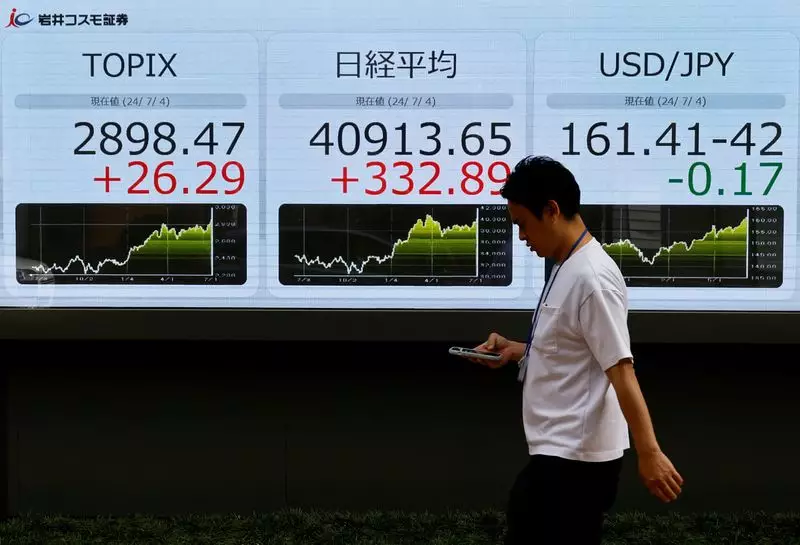The oil market has seen a decline in trading activity, with Brent crude futures hitting a seven-week low of $79.36 due to a softening demand outlook. Traders are now more concerned about Chinese demand rather than geopolitical tensions in the Middle East and Venezuela. This has led to a sell-off in the oil market, contributing to the overall bearish sentiment in commodity markets.
Meanwhile, other financial markets such as bond, currency, and stock markets are also trading cautiously. The S&P 500 has stabilized after a recent downturn, but futures are still down by 0.4% in the Asian trading session. The focus is on upcoming central bank meetings in the U.S. and Japan, as well as major corporate earnings reports. The uncertainty surrounding these events has added to the overall cautiousness in the markets.
The two-day policy meetings in Washington and Tokyo are expected to culminate in interest rate decisions on Wednesday. While markets are not pricing in a U.S. rate cut this week, there is a full expectation of a 25 basis-point reduction in the Fed Funds rate for September. As a result, policymakers are anticipated to adopt a dovish tone in their statements.
In Japan, there is a wider range of potential outcomes, with markets indicating a near 60% chance of a 10 basis point rate hike. Investors are also keen to hear about the Bank of Japan’s plans to taper its bond-buying program. This uncertainty has led to some traders describing the current situation as the “calm before the storm.”
The currency markets have also experienced some stability, with the dollar and yen trading within narrow ranges. The euro is holding steady at $1.0851, while the Australian dollar continues to face downward pressure from falling commodity prices. The Aussie, which was trading at nearly $0.68 less than three weeks ago, is now at $0.6536. The yen, on the other hand, has rebounded from a 38-year low and is hovering around 153.95 per dollar.
Analysts are closely monitoring the currency market, particularly given the upcoming central bank meetings. There is a possibility of a shift in rates outlook, which could impact the trajectory of the yen. As such, market participants are bracing for potential changes in currency values in the coming days.
Looking ahead, there are key economic data releases scheduled for the week. Australian inflation data is set to be unveiled on Wednesday, providing insights into the health of the economy. Additionally, the Bank of England is facing expectations for a rate cut at its policy meeting later in the week. These events are likely to influence market sentiment and trading activity in the days to come.
The global economic indicators are having a significant impact on oil trading and financial markets. The softening demand outlook, uncertainty surrounding central bank meetings, and currency fluctuations are all contributing to a sense of caution among investors. It is crucial for market participants to closely monitor these developments and adjust their strategies accordingly.

